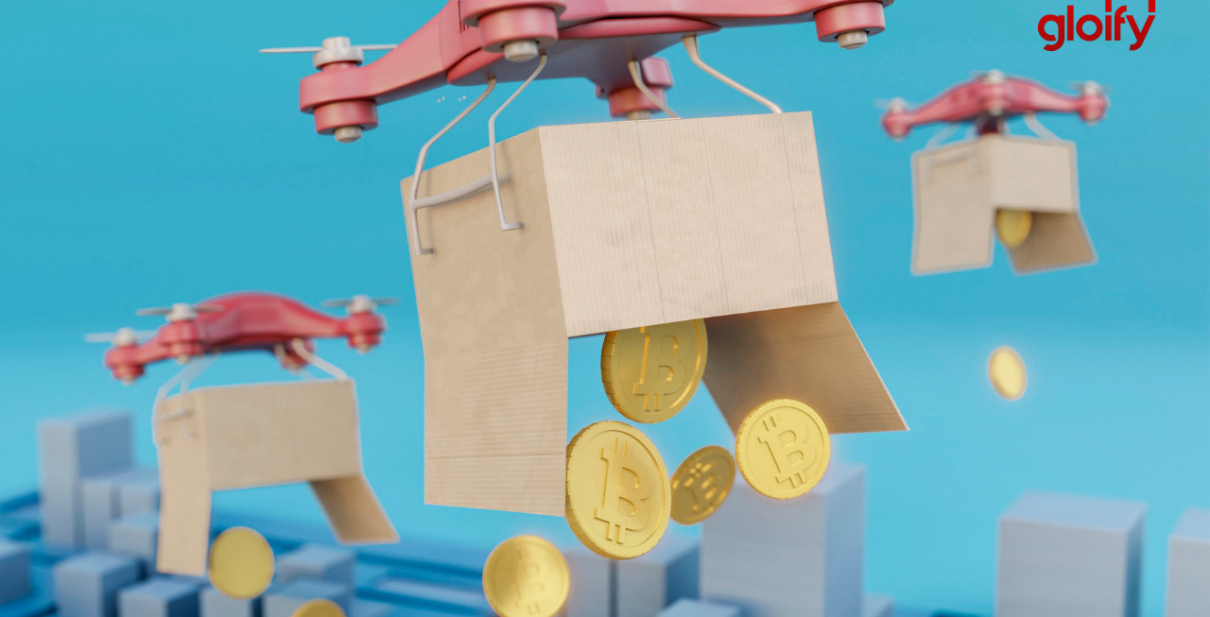Brief about Blockchains
Blockchain refers to a distributed ledger that is used to record transactions between parties securely and permanently. Blockchain eliminates the need for intermediaries who were previously required to act as trusted third parties to verify, record, and coordinate transactions because databases are shared among multiple parties. As a result of blockchain technology, data that used to be stored in well-protected silos may now be transferred to a decentralized, distributed system. How might this affect everyday life? For Example, In e-commerce, imagine having all eCommerce stakeholders’ sensitive data protected and encrypted to improve service experience – from customers to delivery partners.
Unlocking Value in Logistics
Due to the complexity of global supply chains – with diverse stakeholders, varying interests, and numerous third-party intermediaries – blockchain technology is an excellent solution to these challenges. Blockchain is used as a key enabler of efficiency and new business models in the logistics industry in two main ways:
Boost efficiency: By reducing paperwork and bureaucracy significantly, blockchain can potentially improve global trade efficiency. For example, an automated system that stores tamper-evident information in a digital format can replace a multi-party process with a lengthy paper trail. Automating services like insurance, legal, brokerage, and settlement services, which currently require an intermediary, is another example. As a product moves between manufacturers, logistics service providers, wholesalers, retailers, and consumers, Blockchains could be used to track its lifecycle and ownership transfer. By automating each business transaction, it would strengthen the relationship between participants.
Developing new business models: Blockchain-based services can be used to introduce and improve a variety of new business models, such as micropayments, digital identities, certificates, and tamper-proof documents. For instance, Third-parties logistics services could replace paper-based invoices that are easily forged with tamper-proof digital invoices, which could then lead to new identity-related services. Blockchain technology could disrupt current business practices in the same way that the Internet revolutionized communication. Taking advantage of the potential benefits of blockchain, the overall market is expected to grow rapidly. Some estimates project that the market for blockchain technology will grow from USD $411.5 million in 2017 to $7.68 billion by 2022.
Faster and Leaner Logistics in Global Trade
Global shipping is estimated to handle 90% of all world trade, making logistics the lifeblood of modern civilization. There are many parties involved in global trade whose interests often clash and whose priorities frequently differ, not to mention multiple systems used to track shipments. The global economy will largely benefit from new trade logistics efficiencies. One estimate from the World Economic Forum suggests that lowering trade barriers could boost global gross domestic product (GDP) by nearly 5% and global trade by 15%. Many friction points in global trade logistics are able to be alleviated by blockchain technology, including procurement, transportation management, tracking and tracing, and customs collaboration. With over 50,000 merchant ships operating in the global shipping industry and multiple customs authorities regulating freight, ocean freight is one area for improvement in efficiency. Ocean freight shipments can be made more cost-effective as well as more time-efficient with blockchain technology.
Improving Transparency and Traceability in Supply Chains
Several blockchain-based projects are underway to create greater supply chain transparency and improve authenticity monitoring. By utilizing blockchain-based systems, these initiatives obtain data on where, when, and how goods are made. With this technology, the data becomes permanent and easy to share, giving supply chain players a better track-and-trace capability than ever before. The information can be used as proof of legitimacy in pharmaceutical shipments, and as proof of authenticity for luxury goods. Moreover, these initiatives benefit consumers – They will likely want to find out more about the products they are buying, for instance, whether the product was ethically sourced, if it was original, and if it had been preserved properly.
Automating Commercial Processes in Logistics with Smart Contracts
In the logistics industry, blockchain holds significant potential to be used to improve efficiency between suppliers and customers, as well as settle disputes. By incorporating digitized documents and real-time shipment data into blockchain-based systems, smart contracts can be enabled. As soon as certain conditions are met, commercial processes can be automated.
Future logistics contracts will be more intelligent thanks to the Internet of Things (IoT) and blockchain. The blockchain-based system, for example, will be able to send information about the goods and the time of delivery automatically, as well as their condition, on receipt of the pallet. After the delivery has been verified, the system can check whether the goods met the agreed conditions (e.g., temperature, humidity, tilt), and release payment to the appropriate parties, drastically increasing efficiency and integrity of Package. IoT can use blockchain technologies to automate payments between machines.
Conclusion
Developing further technology, transforming organizations, and, most importantly, bringing everyone together will be necessary to make the leap from today’s proving of concepts and piloting solutions to truly deploying them at scale. Creating value from logistics needs to be a joint effort between all parties, transforming legacy processes and adopting new approaches. As the logistics industry is highly fragmented, partnerships that bring stakeholders together will be key to realizing blockchain’s potential for the Future.

